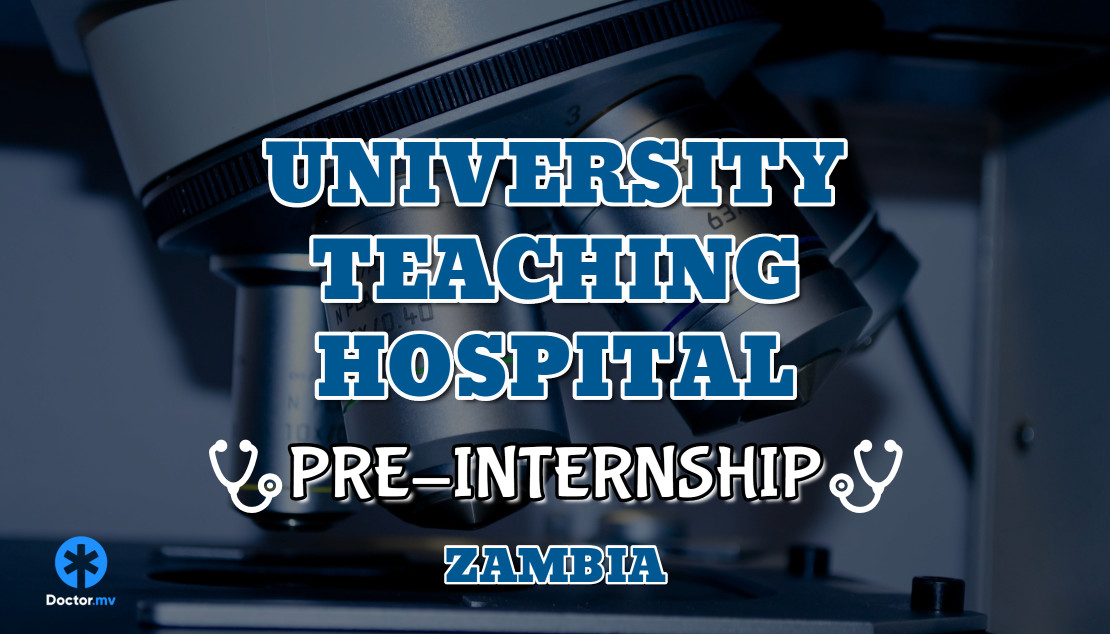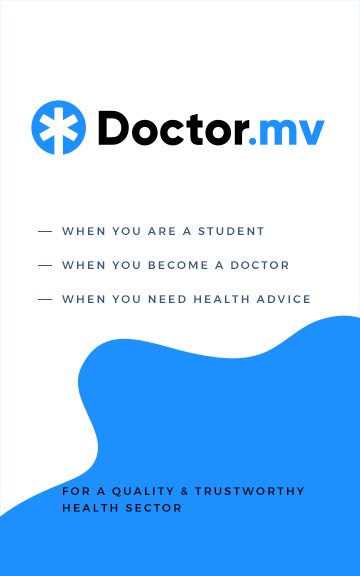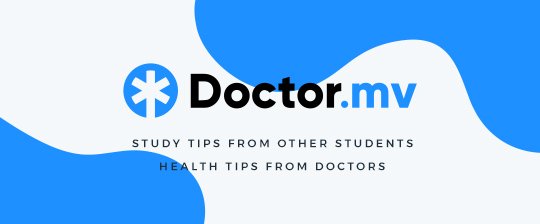I'm IMRAN MOHAMED ADAM and this is My Medical Student Life

Nabeel Ibrahim
Published on: 18/10/2018
China University Teaching Hospital Pre-Internship Xi'an Jiaotong University Zambia Imran Mohamed AdamHospital
University Teaching Hospital
Current Year
Pre-Internship
Medical Specialty Interested in
Surgery
One Word that Describes You
Competitive
Most Intriguing subject in Medical School
Surgery
Note: The Pre-Internship year is a requirement for students that study in China, to complete their course. The student will graduate after the Pre-Internship year, and proceed with completing the Internship year required by the Maldives Medical and Dental Council (MMDC).
What was your path to Medical School like?
I completed my Secondary Education in Dharumavantha School from 2006-2008. I then joined CHSE and finished my 11th grade. It was the year that Villa International High School (VIHS) began. I joined VIHS for my 12th year, and hence was one of the first batch students.
Afterwards I worked at ADK Hospital for an year. I started in the reception helping customers with making appointments and clearing questions. Since I was interested in Medicine, I asked the management for a transfer to the Clinical Support Service (CSS). I worked as a Clinical Assistant for 6 months before I left for China to join Xi'an Jiaotong University.
I have a twin brother, and both of us researched online to find this university. At the time it was one of the highest ranked institutions in China. We applied through an online portal called CUCAS, that helps foreign students study in China. They don't charge as much as an agent does. I would however, like to mention that, if you have a friend that is already studying in the university of your choice, it would be very easy to join.
When it got to my Pre-Internship year, I came to Zambia because the clinical training you get here is excellent. However, there is a certain stigma attached to Africa. Even my parents did not want me to come here. The point I would like to make is that there are safe countries in Africa too. For example, in Kenya, Medicine is even better than in Zambia. Yet, there are a lot of civil wars going on to this day. I would say that training here is amazing and I have learnt a lot.
What was the biggest difference between your expectations of entering Med School when you were doing A'level, and the actual experience of being there?
Until now, for Medicine, Maldivian students go abroad to study. I went alone with my brother. At first, you will find it different when you meet people that you've never met before. Or when you interact with people who do not share the same language. There will be a culture gap since the things we do are different to their traditions and cultures.
Studies-wise, in Secondary and High school, there is always someone that guides you. In university, you are more independent. Since there are 150-200 students in each batch, the lecturer would give their lectures and not bother you afterwards. It's important to make good use of your independent time.
Obviously, there is a change in the level of content given. There is a gap between O'levels and A'levels. There is even a bigger gap between A'level and University. The higher you go the harder it gets. Don't expect Medical School to go as smoothly as High school.
How is your daily routine like?
In the last 4 months I spent as an Intern, the schedule depends on the day. I am currently working in the Gynecology Department. There are on-call days where you work overnight. We have admission days where we see patients and admit them to different wards. There are also Operation days where we have Elective Surgeries only. Finally, there are clinic days where the Consultants, Medical Officers, Registrars etc. work and consult the patients.
In the morning (if not an on-call day), we are at the hospital at 7 am. The Medical Officers, Registrars and Interns make the rounds and see patients for the day. Depending on whether it is a theater day, we go there after we see the patients in the ward. We would then scrub in and start the surgery. We do many surgeries; for example, recently we had a Total Abdominal Hysterectomy, and we took out a Myoma weighing 8.72 kilograms. Surgeries will go until 3 or 4 pm, and then we are free to go home.
On on-call days, we will be on-call until the next morning. We will then give the hand-over to the next firm/group and finally check the patients at the ward before going home.
At home, I review what we learnt. The Registrar or Consultant would tell us what needs to be reviewed, and would ask questions on it the next day. By the time I go to sleep it is 9 pm, and I wake up at around 5 am.
Discuss your decision to pursue Medicine. When did you decide to become a physician and why?
You could say that it was by chance I joined Medical School. I got the opportunity to study Engineering in Turkey and also went for a tryout as an Air Traffic Controller. Both did not work out.
Afterwards, while I was working in the reception at ADK Hospital, I had a slight interest in Medicine. I liked how things are in the hospital. It was during my time as a Clinical Assistant, I developed the desire and urge to pursue medicine.
Ever since the third year, I have been working at ADK for electives during the holidays. I get the opportunity to follow any doctor in any department. This is something I would advise any Medical student to do as it helps a lot. If you get the chance to work in different countries, that is much more better. You get the exposure to different places and fields. Medicine is always evolving so I think the exposure is important.
Which qualities do you look for in a Doctor?
Patience. It is the key to everything.
When you're in Medical school, and you don't understand a topic. Or in the hospital, when the doctor is teaching, you may not be able to grasp the information on the first try. You have to have the patience to study it over and over again until you learn it.
When working, you might be seeing 100-150 patients a day. From them, there are some that may not be considerate towards you. In this case, patience is important to deal with them.
Name your favorite medical text book.
Made Ridiculously Simple Book Series.
I would also urge Medical students to read literature on resources such as NCBI and The New England Journal of Medicine. As I mentioned before Medicine is evolving. When you are going into the Medicine field, you must know what is changing and what is not.
Where do you see yourself 10 years from now in the Medical field?
Hopefully, a reputable Surgeon with research papers published.
What is the most effective way to study in Medical School?
One of the doctors taught me this method; You see something, You do that and You teach it.
These 3 steps will help you remember information for the rest of your life. The doctors I've worked with in the Maldives, and here in Zambia, love to teach a lot. If you know something, teach it. This way you're refreshing it again and again.
Unless and until you have a photographic memory, it is impossible to contain all the information you learnt in six years of Medical School. My seniors tell me that they constantly keep learning everything. It's a never ending cycle.
See it, Do it, Teach it.
Do you need High grades to become a decent doctor?
To be a doctor, you don't need a very high grade. Because a doctor is someone who is smart, as well as be able to socially interact with patients. He/she should have the capacity to understand someone's feelings.
You have to be an overall person to become a great doctor.
Finally, what is the one tip/advice you want to give to our readers?
For someone who is interested in pursuing Medicine:
When you start, be sure of it. There are students that give up half-way through. Be determined and courageous. It isn't impossible.
You should know that it is a long journey, and one that is not going to be easy. You should know that you are going to work to save lives. You are treating people who are almost on the brink of death. You have the chance to revive them and send them home healthy. That is fulfillment. You are happy.
For the current Medical students:
In the six years of your Medical student life, don't aim to be an ordinary student. That is, someone who goes to school just to study and then go back home. Then there are students that spend the whole year in the library. I don't advise you to do this. Have a social life. Learn some leadership skills. Attend seminars and conferences. Be an overall doctor.
In addition, there are a lot of new doctors graduating each year. Try and be unique. Have something that other people do not have. Be an extraordinary doctor.
As a final note, I would like to thank my mentor and my better half, Aishath Ruvaisha for helping and motivating me through everything. Last but not the least, I want to thank my parents for the never ending support and encouragement throughout my life. The person I am right now is because of them.
The My Medical Student Life series was created for the sole purpose of helping medical students and aspiring doctors on their journey to become a successful Maldivian Healthcare Professional. Have a suggestion, idea or question? Email us.



Leave a comment
0 Comments